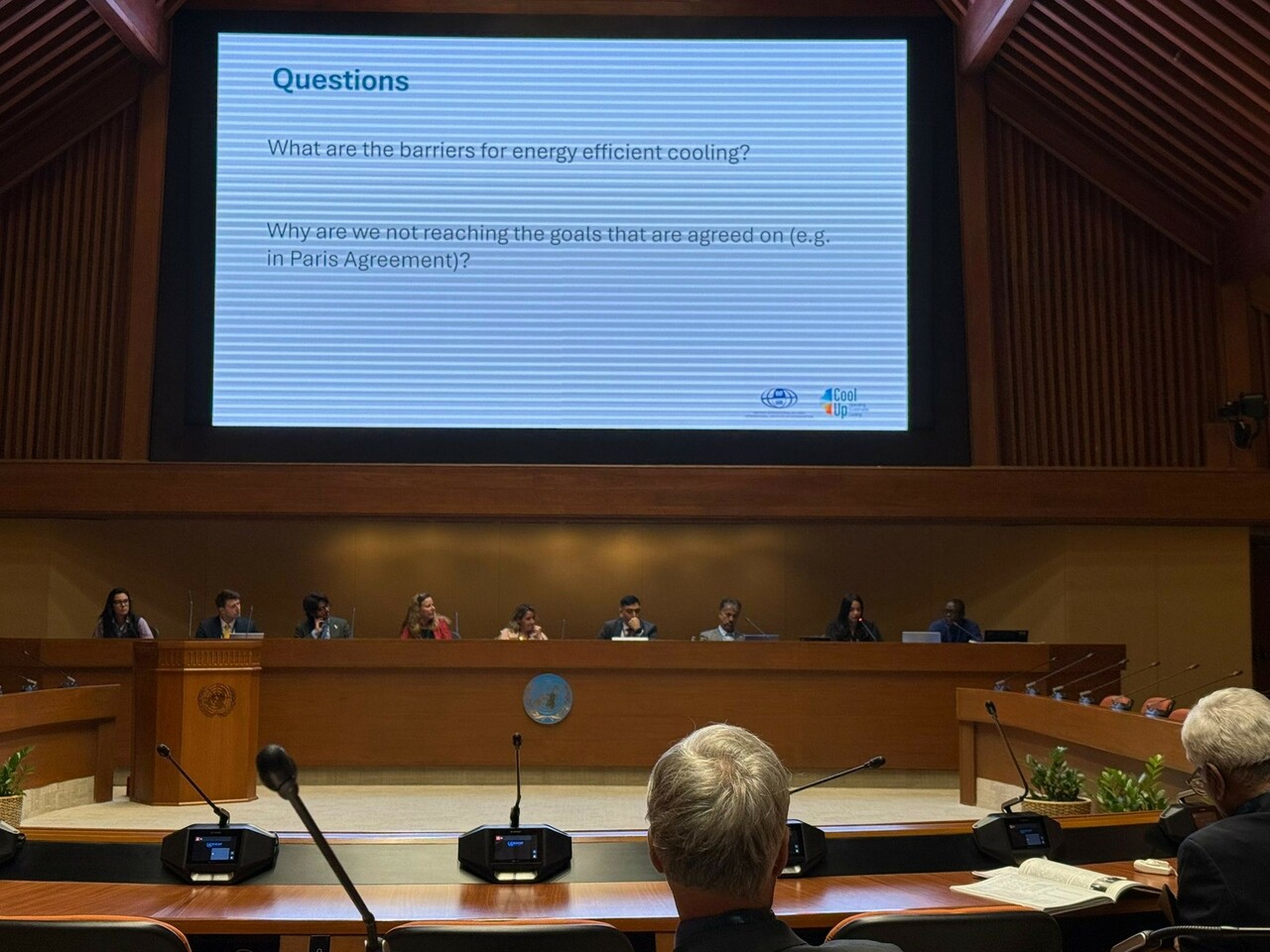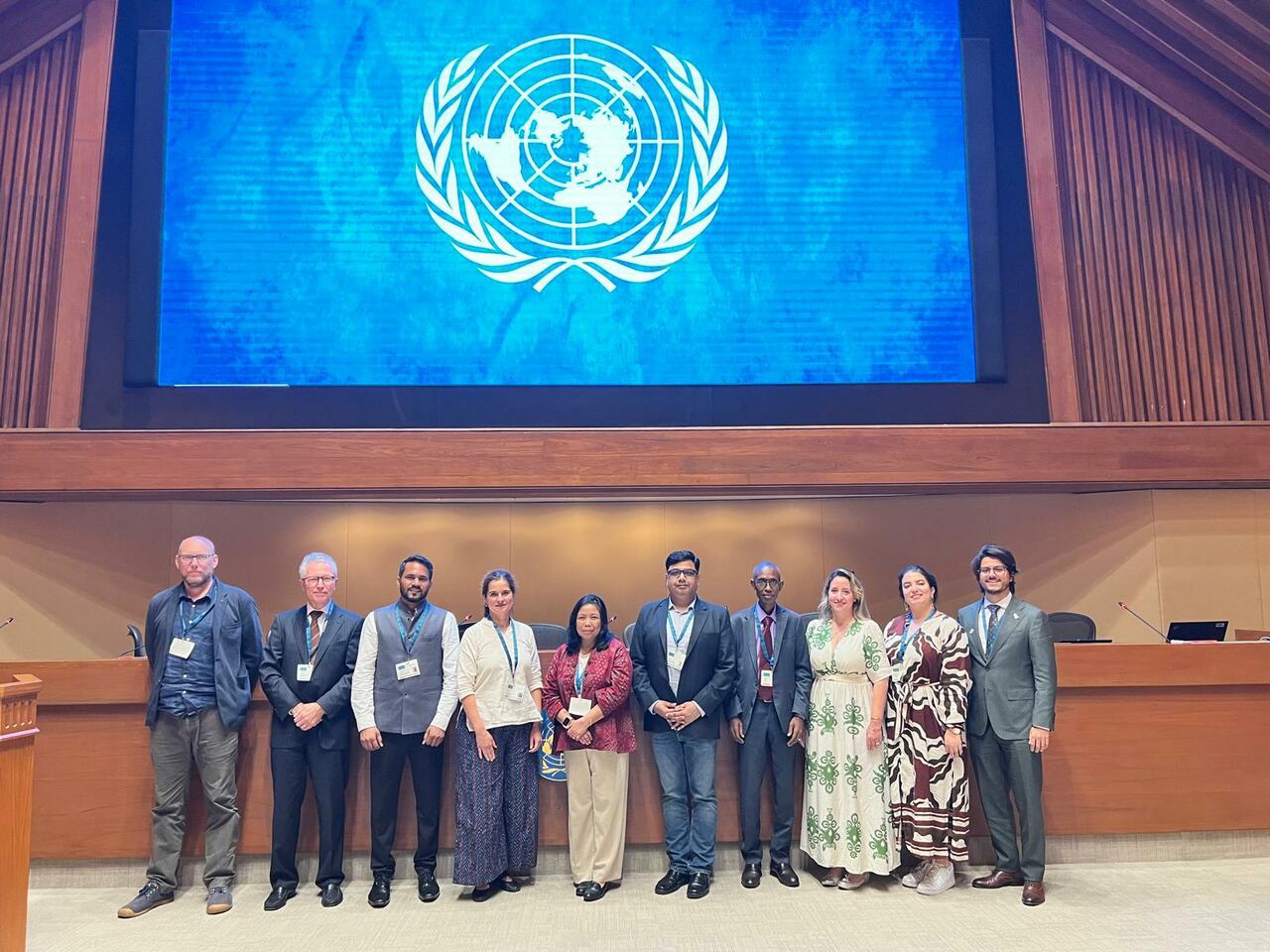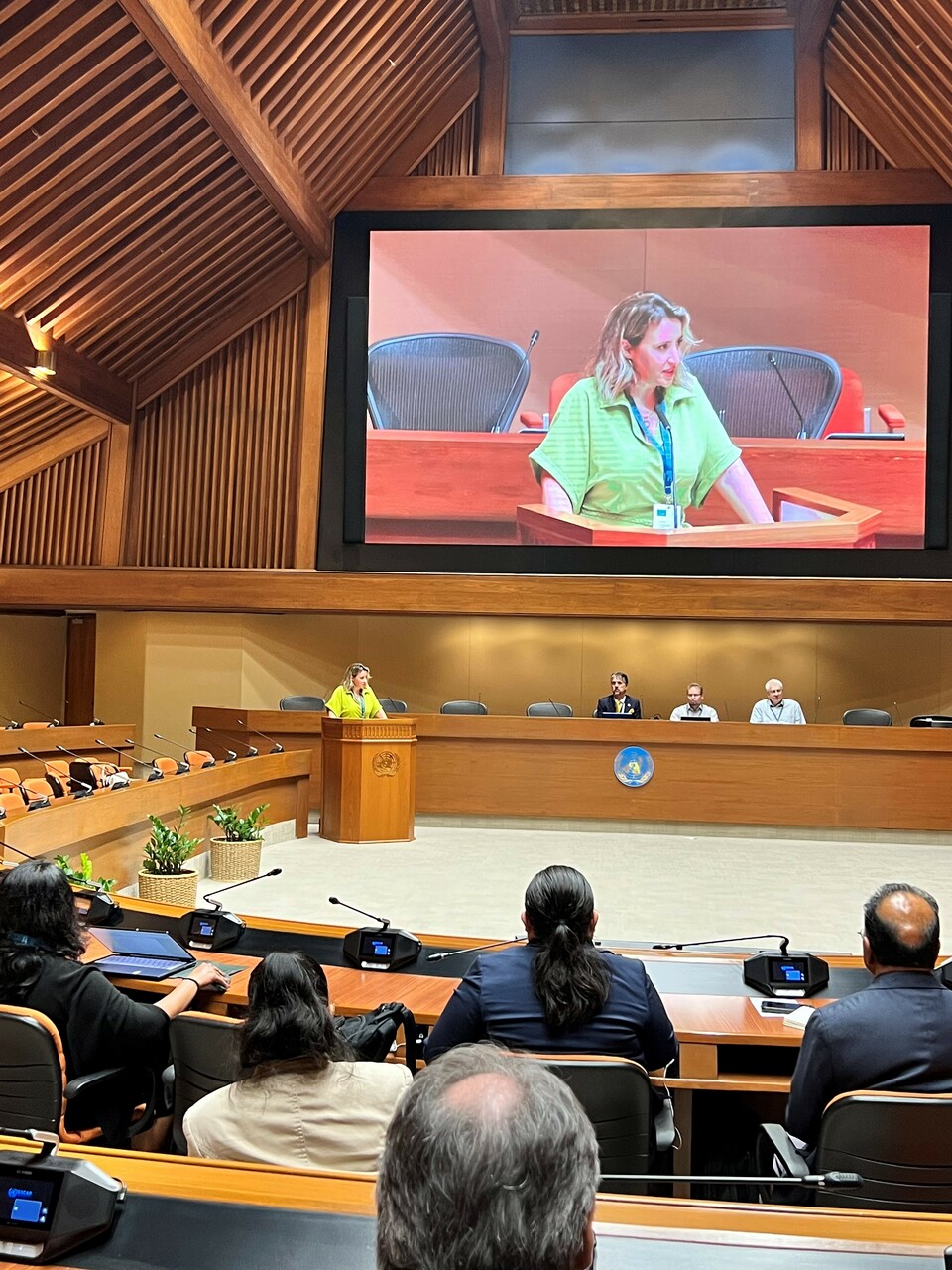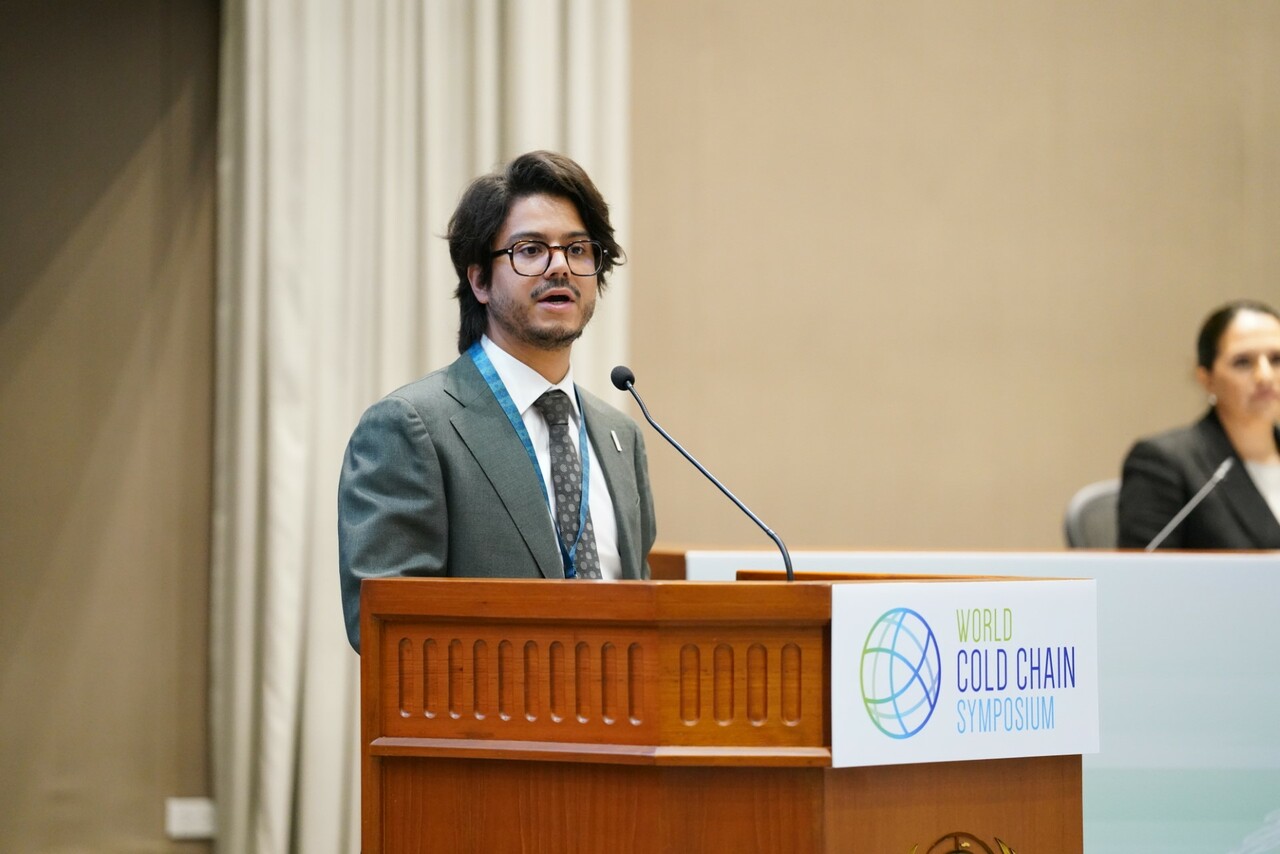IIR in Bangkok: Highlights from COP13/MOP36 and the World Cold Chain Symposium
IIR actively participated in the COP13/MOP36 and 2024 World Cold Chain Symposium events organised in Bangkok, Thailand, from 26 October to 1 November, hosting two side events and promoting solutions for sustainable refrigeration.
COP13/MOP36
The 13th meeting of the Conference of the Parties to the Vienna Convention (COP13) and the 36th meeting of the Conference of the Parties to the Montreal Protocol (MOP36) were held in Bangkok (Thailand) from 28 October to 1 November 2024. The IIR took an active part in this event as it hosted two side events, spoke in two partner events and engaged with the parties to collectively build knowledge and drive progress towards more sustainable refrigeration.
For this edition some of the main topics on the negotiation table were:
- Further strengthening Montreal Protocol institutions by addressing illegal trade
- Avoiding unwanted imports of energy inefficient products and equipment
- Enhancing atmospheric monitoring with a particular focus on HFC-23, the longest-lived and most potent greenhouse among HFCs
- Addressing Life-Cyle Refrigerant Management (LRM) of HFCs in the refrigeration, air conditioning, and heat pump sector
- Strengthening the enabling environment to enhance energy efficiency
Beyond the daily plenary sessions, a budget committee and 15 contact and informal groups took place throughout the week. Numerous decisions were adopted on HFC-23, LRM, imports of inefficient equipment, among others. However, delegates were not yet able to come to a decision on enabling activities to enhance energy efficiency in the sector.

The IIR hosted a side event on Monday 28 October in partnership with the Cool Up Programme, focusing on “Enhancing energy efficiency in the refrigeration and cooling sectors.” The event aimed to raise awareness among parties to set energy efficiency among the highest priority topics due to its economic and environmental potential, discuss challenges and innovations.
The event opened with remarks from Yosr Allouche, Director General of the IIR, and Jakob Hoffmann, from the Cool Up Programme, who emphasised the crucial role of efficient cooling solutions in reducing greenhouse gas emissions. The event was chaired and moderated by Souhir Hammami (IIR), with panellists Andrea Voigt (Danfoss), Hubert Zan (Ghana), Marco Buoni (AREA), Marco Duran (IIR), and Isroiljon Khasanov (UNDP). They discussed the status of electricity consumption and increasing demand, the need for stronger governance in order to develop better policies, andthe key role of certifications and Minimum Energy Performance Standards. With innovation as a central focus, they debated on funding and investment opportunities that support energy-efficient projects and the need for strategic partnerships to unlock those. Bjorn Palm closed the event with a brilliant summary of the discussions.

On 30 October IIR hosted a second side event, “Overcoming Barriers to Natural Refrigerant Adoption in Emerging and Developing Countries.” The session aimed to present existing applications, legislation and technical potential of natural refrigerants to increase parties’ awareness.
IIR Director General Yosr Allouche opened the event by outlining the IIR’s mission and highlighting the critical role of natural refrigerants in global climate goals. Björn Palm, member of the IIR Management Committee and Swedish delegate to the IIR, discussed Europe’s regulatory progress and the EU’s transition towards low-GWP refrigerants. Sonal Kumar, representing the Council on Energy, Environment, and Water (CEEW) in India, shared India’s efforts in preparing the refrigerant transition through lifecycle refrigerant management and in developing projects with natural refrigerants, through the example of INDEE+. A panel discussion, moderated by Marco Duran (IIR) and panellists Ellen Michel (GIZ), Baba Dramé (Senegal), Bitul Zulhasini (Indonesia), Daniel Colbourne (Re-phridge and IIR) and Santosh Kumar Saini (AEEE) explored the national approaches, emphasising the critical role of policies, technological advancements, and financing mechanisms in overcoming the hurdles to the adoption of natural refrigerants.

On the last day, Yosr Allouche delivered IIR’s official statement to the Plenary. She reaffirmed our commitment to the objectives of the Montreal Protocol and the Vienna Convention, confirmed that IIR firmly believes that evidence-based policymaking is essential to achieving our environmental and climate targets, and that we are committed to strengthening technology transfer and enhancing Ozone Officers capacities, so that both developed and developing countries have the resources they need for this essential transition.
World Cold Chain Symposium
This year, the World Cold Chain Symposium (WCCS), organised by the Global Food Cold Chain Council (GFCCC) in partnership with the United Nations Environment Programme (UNEP), took place in Bangkok as well, on 26 October,, i.e. one day ahead of the COP13/MOP36 meetings, to leverage such important gathering.
The event featured global experts who addressed 4 key topics to foster an end-to-end sustainable cold chain:
- Impact and Benefits of the Cold Chain
- Technology for Cold Chains – Connecting the Dots
- Training, Servicing, and Capacity Building Issues – Challenges and Opportunities
- Momentum in Financing Opportunities and Mechanisms

IIR was represented by Marco Duran, Head of Policy and Global Partnerships, who presented our work in the European Food Chain Supply to Reduce GHG Emissions by 2050 (ENOUGH) project. IIR coordinates the Data and scenarios work package, which aims to develop a baseline for the European supply chain’s GHG emissions and to provide future estimations for 2030 and 2050. The work is carried out for 10 EU countries that account for 70% of the population in EU27(2020)+UK and covers the full supply chain, from farm to fork.
Fellow speakers presented on various approaches to strengthen the cold chain globally, such as training facilities in Africa (WFP), emerging off-grid technologies in India, as well as operating and innovative business models, and opportunities to leverage financing, including through the Multilateral Fund.
